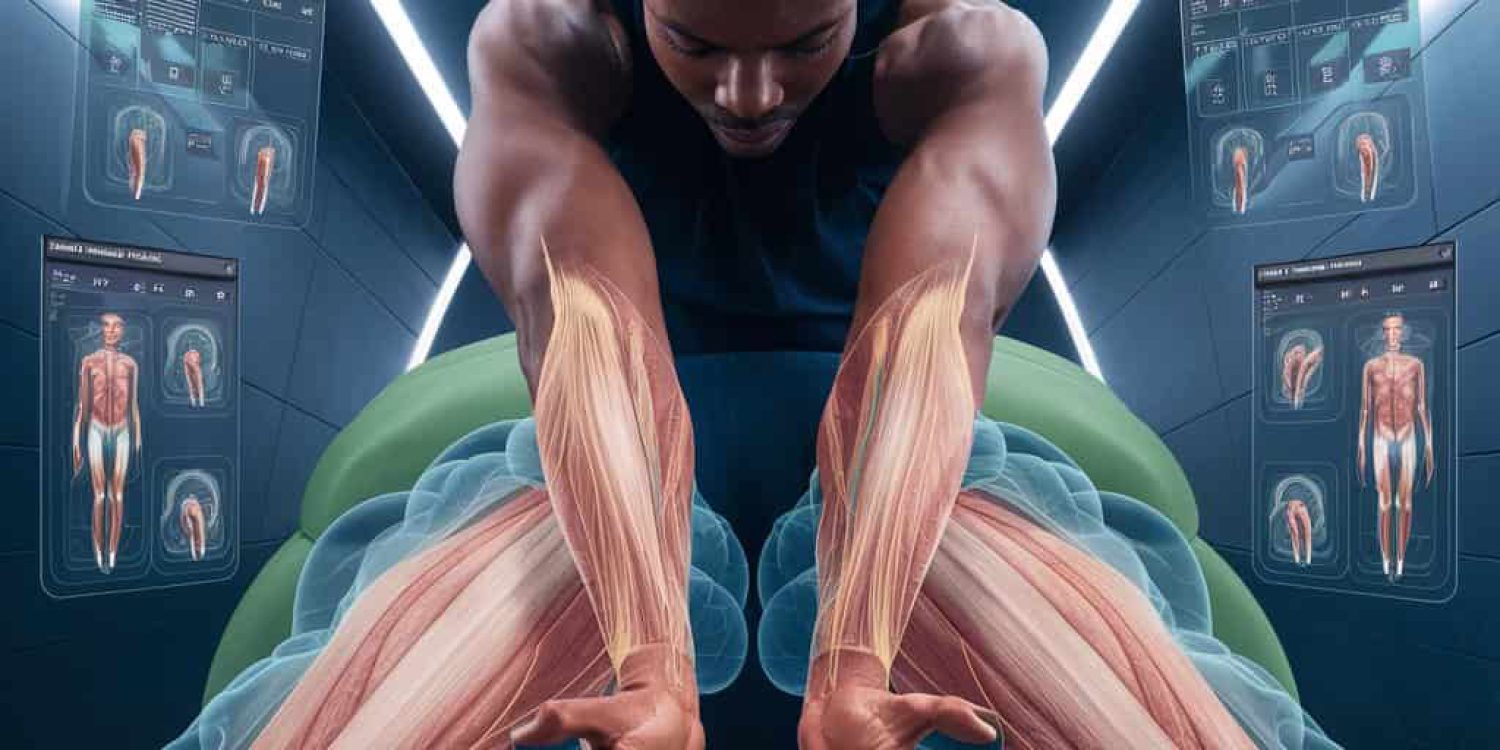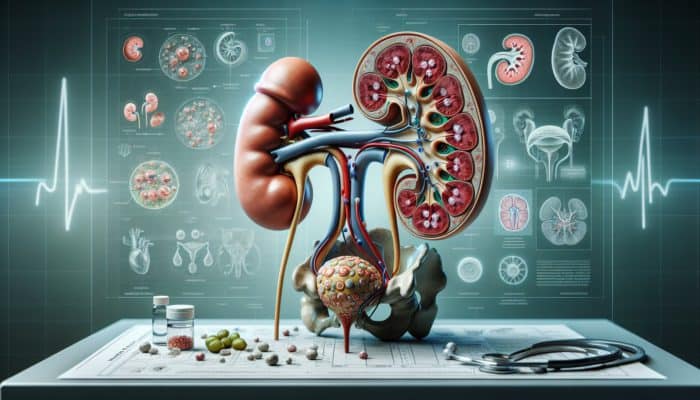Choosing the Right Massage: Sports vs Deep Tissue
Massage therapy involves various techniques and methods customised to meet specific needs and goals. By understanding the differences between sports massage and deep tissue massage, individuals can gain control over their massage therapy choices. Athletes and others who lead active lifestyles can benefit from sports massage, a subset of massage therapy.
The objective is to mitigate and address sports-related injuries, enhance flexibility, and optimise athletic performance. This massage modality integrates stretching, compression, and friction to target muscle regions and expedite recuperation specifically. Deep tissue massage is a treatment that specifically addresses the most underlying layers of connective tissue and muscles.
It is especially advantageous for individuals dealing with persistent discomfort, muscular tension, and problems with their posture. Deep tissue massage, with its intense pressure and deliberate strokes, offers relief and comfort by relieving muscular tension and adhesions, reducing pain and enhancing mobility. On the other hand, sports massage is primarily designed to optimise performance and avoid injuries, specifically for athletes and active individuals.
Deep tissue massage alleviates chronic pain and muscle tightness by directly targeting the deeper layers of muscles and connective tissues.
Main Pointers
- Sports massage improves athletic performance and prevents injury, while deep tissue massage targets chronic pain and muscle tension.
- Active individuals should choose sports massage to enhance their performance, prevent injuries, and aid recovery.
- Deep tissue massage benefits individuals experiencing chronic pain, muscle tension, and limited mobility.
- Tailoring your massage to your specific needs involves communicating with your therapist about your goals and any areas of concern.
- Sports massage can improve athletic performance and aid post-workout recovery by increasing flexibility, reducing muscle soreness, and promoting relaxation.
 When to Choose Sports Massage for Active Individuals
When to Choose Sports Massage for Active Individuals
Optimising Performance
Before a sports competition or intense workout, massage can help athletes prepare their muscles for optimal performance. It can improve flexibility, enhance range of motion, and reduce the risk of injuries during physical activity.
Accelerating Recovery
After a strenuous workout or sports event, sports massage can aid in recovery by reducing muscle soreness, promoting circulation, and accelerating the elimination of metabolic waste from the body.
Preventing Injuries and Supporting Rehabilitation
Regular sports massage treatments can assist in identifying and addressing potential areas of muscle stiffness, imbalance, or overuse, decreasing the likelihood of sports-related injuries. Sports massage is essential for athletes in the recovery phase of an injury as it facilitates healing, reinstates mobility, and prevents muscle wasting. Ultimately, physically active individuals can derive advantages from sports massage as a component of their comprehensive training routine, enhancing their performance, averting injuries, and facilitating healing.
The Benefits of Deep Tissue Massage for Chronic Pain and Muscle Tension
Deep tissue massage has numerous advantages for persons with persistent pain, muscular tightness, and postural problems. This therapy focuses explicitly on the underlying layers of ligaments and tendons to alleviate stress, reduce discomfort, and enhance overall mobility. Deep tissue massage has several significant advantages for relieving chronic pain and muscle tension:
Pain Alleviation: Deep tissue massage substantially alleviates persistent pain disorders, including lumbar pain, stress in the neck and shoulders, fibromyalgia, and osteoarthritis. The application of forceful pressure during the massage aids in disintegrating adhesions and knots in the muscles, hence diminishing pain and discomfort.
One of the many benefits of deep tissue massage is improving the range of motion. Your posture, mobility, and flexibility will improve as it alleviates chronic muscle stress and stiffness. Those stiff or with limited movement due to long periods of inactivity, repetitive actions, or injuries may find this particularly helpful.
Stress Reduction: Chronic pain and muscle strain frequently contribute to heightened stress levels and cognitive exhaustion. Deep tissue massage alleviates physical discomfort, fosters relaxation, diminishes stress hormones and improves general well-being.
Deep tissue massage is a comprehensive method for treating persistent pain and muscular tightness. It focuses on the underlying source of suffering and encourages lasting alleviation. This approach is beneficial for those undergoing injury recovery from sports injuries, accidents, or surgical operations. It helps in rehabilitation by improving circulation, minimising scar tissue formation, and restoring normal function to the afflicted muscles and soft tissues.
Tailoring Your Massage to Your Specific Needs
When contemplating between sports massage and deep tissue massage, it is crucial to customise your selection based on your requirements and objectives. Every variant of massage therapy provides distinct advantages that specifically address various diseases and lifestyles. When deciding which massage is most suitable for you, there are several aspects to consider:
Activity Level: If you're often on the go, like an athlete or someone who does a lot of hard work, sports massage could be just what you need. This massage can help support your training routine and reduce the risk of sports-related injuries. However, deep tissue massage may be more suitable for addressing your specific requirements if you suffer from persistent discomfort or muscle tension unrelated to physical exertion.
Pain Management: For individuals experiencing chronic pain disorders such as fibromyalgia, arthritis, or muscular tension, deep tissue massage can provide more effective treatment by targeting the root causes of discomfort. Sports massage can also alleviate acute muscle discomfort, but its main objective is to optimise sports performance—the number.
Personal Preferences: Consider your capacity to handle stress and your level of satisfaction with particular massage methods. Sports massage typically involves vigorous motions and stretching, whereas deep tissue massage applies strong pressure to target deeper muscle layers specifically. Effectively convey your choices to your massage therapist to guarantee a customised experience.
Treatment Goals: To optimise athletic performance, facilitate injury recovery, alleviate chronic pain, or promote relaxation, it is crucial to connect your treatment goals with the targeted advantages of sports or deep tissue massage. Consulting with a trained massage therapist can help determine which approach suits your needs and tastes.
 How Sports Massage Can Improve Athletic Performance and Recovery
How Sports Massage Can Improve Athletic Performance and Recovery
Sports massage is crucial for improving sports performance and aiding in the rehabilitation of athletes at any skill level. Whether you are an elite athlete or a casual sports fan, including sports massage in your training routine can provide many advantages for your physical health. Here are several methods by which sports massage can enhance athletic performance and facilitate recovery.
Increased Flexibility: A key component of sports massage is stretching exercises to increase mobility and flexibility. This can be especially advantageous for those who need maximum flexibility in their sport or activity.
Sports massage aids in injury prevention by focusing on particular muscular groups susceptible to overuse or tension. This reduces the likelihood of sports-related injuries, such as strains, sprains, and muscle imbalances. Regular sessions can detect possible areas of concern and take proactive measures to address them.
Enhanced Recovery: Sports massage is a powerful tool for recovery. Pain, inflammation, and exhaustion might slow recovery after strenuous exercise or competition—consequently, sports massage aids in the elimination of metabolic waste, resulting in faster recovery time. Because of the emphasis on recovery, viewers may feel uplifted and optimistic.
Enhanced Circulation: Sports massage is a key player in improving blood circulation to the muscles. This process delivers vital oxygen and nutrients necessary for muscle rejuvenation and recovery. The improved blood flow also helps eliminate metabolic waste products that lead to muscle fatigue. This emphasis on improved circulation can make the audience feel invigorated and energised. To summarise, sports massage is beneficial for athletes to enhance their performance, avoid injuries, and accelerate the healing process after intense physical exertion.
The Therapeutic Effects of Deep Tissue Massage for Stress and Anxiety
Reducing Stress and Anxiety
Deep tissue massage can benefit individuals dealing with stress and anxiety in several ways. First, the firm pressure stimulates the parasympathetic nervous system, triggering the body's relaxation response. This helps reduce stress hormones such as cortisol and promotes a sense of calmness and tranquillity.
Emotional Benefits
Deep tissue massage can also facilitate the release of emotional blockages stored in the muscles, allowing for emotional release and relief. Chronic muscle tension is often linked to emotional stress and psychological strain, and by releasing this tension, individuals can experience a greater sense of emotional well-being.
Improved Overall Well-being
In addition to reducing stress and anxiety, deep-tissue massage can improve sleep quality by reducing tension in the body and calming the mind. This holistic approach can lead to increased self-awareness and a more balanced state of being. By addressing physical tension through deep tissue massage, individuals can experience a greater connection between their body and mind, promoting relaxation, reducing stress hormones, and supporting emotional well-being.
 Finding the Right Balance: Incorporating Both Sports and Deep Tissue Massage into Your Wellness Routine
Finding the Right Balance: Incorporating Both Sports and Deep Tissue Massage into Your Wellness Routine
Although sports and deep tissue massage have different objectives in treating physical requirements and enhancing general health, integrating both techniques into your wellness regimen can provide a holistic approach to maintaining good health. By incorporating the advantages of sports massage for enhancing athletic performance with the curative impacts of deep tissue massage for alleviating stress, individuals can attain a harmonised approach to their bodily and mental well-being. Active persons who regularly participate in physical activity or competitive sports can benefit from including sports massage in their training routine. This practice can help prevent injuries, improve performance, and aid recovery.
Regular deep-tissue massage treatments can effectively target chronic pain disorders, lower stress levels, and enhance overall relaxation. By collaborating with an experienced massage therapist who comprehends your specific requirements and objectives, you can incorporate sports and deep-tissue massage as supplementary components of a tailored wellness plan. With this all-encompassing method, you may alleviate chronic pain and stress while still meeting the demands of your active lifestyle and putting your mental and emotional health first.
Ultimately, understanding the differences between sports and deep tissue massage empowers consumers to choose the modality that best suits their needs. Both types of massage, whether aimed at improving sports performance or relieving chronic pain, have unique benefits that cater to specific conditions and lifestyles. This knowledge gives you the confidence to select the best massage treatment for your individual needs, promoting a sense of control over your health and well-being.
By customising your selection of massage treatment based on your own needs and objectives, you may attain a harmonious approach to overall health that promotes both your physical and emotional well-being.
FAQs
What is sports massage?
Sports massage is a type of massage that is specifically tailored to sporting injuries or ailments. It is not a relaxing massage and can often be quite strenuous.
What is deep tissue massage?
Deep tissue massage is a therapy that focuses on realigning deeper layers of muscles and connective tissue. It is especially helpful for chronic aches, pains, and contracted areas such as stiff neck and upper back, low back pain, leg muscle tightness, and sore shoulders.
What are the differences between sports massage and deep tissue massage?
Sports massage is geared toward athletes of every kind, from world-class professionals to weekend joggers. The particulars of the sports massage technique are specific to the athlete's sport of choice. Deep tissue massage targets the inner layers of your muscles, tendons, and fascia. It's used for chronic aches, pain, and contracted areas such as a stiff neck and upper back, low back pain, leg muscle tightness, and sore shoulders.
What are the benefits of sports massage?
Sports massage can help maintain the body in generally better condition, prevent injuries and loss of mobility, cure and restore mobility to injured muscle tissue, boost performance and extend the overall life of your sporting career.
What are the benefits of deep tissue massage?
Deep tissue massage usually focuses on a specific problem, such as chronic muscle pain, injury rehabilitation, and the following conditions: low back pain, limited mobility, recovery from injuries (e.g. whiplash, falls), repetitive strain injury, such as carpal tunnel syndrome, postural problems, muscle tension in the hamstrings, glutes, IT band, legs, quadriceps, rhomboids, upper back.
Which type of massage is better for me?
The type of massage that is better for you depends on your specific needs and goals. Sports massage may be more beneficial if you are an athlete looking to improve performance and prevent injuries. Deep-tissue massage may be the better option if you are experiencing chronic muscle pain or have specific problem areas. It is best to consult a qualified massage therapist to determine the best approach for your needs.
Brought To You By:
References
- The Role of Massage in Sports Performance and Rehabilitation: https://www.ncbi.nlm.nih.gov/pmc/articles/PMC2953308/
- What is a Sports Massage, and how is it of benefit https://www.physiotherapymatters.co.uk/blog/why-should-i-have-sports-massage/


























20 Comments
Your exploration of the differences between sports massage and deep tissue massage really highlights how tailored massage therapy can be to individual needs. I’ve experienced both types, and I find it fascinating how each approach serves distinct purposes in physical wellness.
It’s great to hear about your experiences with both sports and deep tissue massage. Each style really does cater to unique needs, doesn’t it? Sports massage tends to focus on preventing injuries and enhancing performance, which is perfect for athletes or anyone who’s quite active. On the other hand, deep tissue massage digs into those stubborn knots and tight spots that life seems to create for all of us.
It’s great to hear about your experiences with both sports and deep tissue massage! Each type really does have its own vibe and purpose. Sports massage is often all about preparing the body for activity or helping with recovery after it, focusing on the muscles used most in your particular sport. It’s like giving your body a tune-up to keep everything running smoothly.
“I’m glad you found the article insightful! If you’re curious about how to choose the right massage for your needs, check out this guide for more tips.”
https://mcrtherapies.co.uk/yt
Your experience with both sports massage and deep tissue massage is a great starting point to delve deeper into how varied our needs can be when it comes to physical wellness. It’s true that these two methods serve distinctive purposes, yet they often get lumped together in casual conversation.
I’m glad you found the distinctions so enlightening! If you’re interested in exploring the benefits of tailored massage therapy further, check out this link for more insights and options.
https://mcrtherapies.co.uk/yt
It’s interesting how personal experiences can vary so much when it comes to massage therapy. Your mention of the distinct purposes for sports and deep tissue massage really resonates. I’ve had moments where a sports massage helped me recover after an intense workout, making it feel like I was back on my feet much quicker. On the flip side, a deep tissue massage is a whole different ball game—it digs into tension that’s built up over time, which can be a bit uncomfortable but ultimately so worth it.
This discussion on the differences between sports massage and deep tissue massage is both enlightening and timely, especially as more individuals are recognizing the integral role of bodywork in maintaining physical and mental health. It’s fascinating how massage therapy, rooted in ancient practices, has evolved into such a specialized field that caters to diverse needs.
It’s great to hear that you found the discussion engaging. The way massage therapy has adapted over centuries is truly remarkable. It’s not just about soothing sore muscles anymore; it’s become a nuanced field that addresses a wide range of physical and emotional needs.
I’m glad you found the discussion insightful! If you’re interested in exploring more about the benefits of different massage techniques for your health and well-being, check out this resource.
https://mcrtherapies.co.uk/ezi
You’ve touched on such an interesting point about the evolution of massage therapy. It’s true that over the years, our understanding of bodywork has deepened significantly, leading to a greater appreciation for how different techniques can address specific needs.
I’ve always found the distinction between sports and deep tissue massage fascinating, especially since I’ve had experiences with both. As an amateur runner, I initially gravitated toward sports massage to help with recovery after intense training sessions. The focus on flexibility and targeted muscle care made a noticeable difference in my performance and overall comfort.
This is such a timely discussion! I’ve dabbled in both sports massage and deep tissue therapy, and it’s like choosing between a warm hug and an ‘I love you, but we’ve got to talk’ conversation. Sports massage definitely has its perks, especially when I’m trying to outrun my past self during a workout—or at least convince myself that my couch-to-5K was really a ‘5K-to-couch’ journey. The stretching and focus on muscle recovery feel divine, especially after an ill-advised game of beach volleyball.
You’ve really captured the essence of the debate between sports massage and deep tissue therapy with that warm hug imagery—it’s such a relatable way to frame the experience. It sounds like you have a good handle on how they serve different purposes, especially in your own journey to balance fitness and recovery.
“I’m glad you enjoyed the discussion! If you’re looking to enhance your recovery routine, check out some tips and tricks for maximizing the benefits of both sports massage and deep tissue therapy here.”
https://mcrtherapies.co.uk/ezi
This is such an important distinction to make when selecting a massage! I’ve noticed how my body responds differently depending on which massage I get. After a tough race, I find that a sports massage really helps me recover quicker by addressing the specific muscle groups that are sore from the exertion. It’s almost like a tune-up for my muscles! On the other hand, when I’ve had weeks of desk work and feel that creeping tension in my neck and shoulders, a deep tissue massage is essential for alleviating that chronic tightness.
You nailed it! It’s wild how a massage can feel like a superhero for different muscle moments, right? Your body’s like, “You ran a marathon? Cool, here’s a sports massage. You sat like a pretzel at your desk? Hand me a deep tissue massage, stat!”
Ah, the eternal debate: Sports vs. Deep Tissue – the ultimate face-off in the massage world! It’s like choosing between a high-speed chase and a cozy Netflix binge—both great but entirely different experiences. As someone who once mistakenly thought “sports massage” was just for athletes, I can confirm it’s also for weekend warriors like me trying to recover from that intense game of Ultimate Frisbee (or, let’s be real, the couch-to-fridge sprint).
Your exploration of sports massage versus deep tissue massage resonates with many who strive to balance their physical activities and overall health. Having experienced both modalities, I can definitely appreciate the unique benefits each offers, yet they cater to quite distinct needs.
This is such an interesting exploration of the nuances between sports and deep tissue massage! I’ve experienced both types, and each has its unique benefits that can really shape recovery and wellness differently. For instance, after training for a marathon, sports massage helped me immensely—it felt like I was getting a personalized tune-up for my muscles. The focus on stretching and targeting specific muscle groups really made a difference in my flexibility and recovery times.
It’s fascinating to see the distinctions you’ve outlined between sports and deep tissue massage. As someone who has experienced both, I appreciate how each serves unique purposes depending on my needs at the time. For instance, after a particularly intense race, I found sports massage to be invaluable. The targeted approach helped with recovery and even improved my flexibility, which I hadn’t anticipated.
This is a thoughtful exploration of the distinctions between sports massage and deep tissue massage. As someone who has relied on both modalities at various points in my life, I can appreciate how each serves a unique purpose based on individual needs and contexts.
The distinctions you’ve highlighted between sports and deep tissue massage resonate deeply with my own experiences in navigating the world of massage therapy. As someone who has juggled a passion for running while also facing chronic tightness in my shoulders from long hours at a desk, I have found myself at a crossroads when it comes to choosing the right massage type.
Your discussion on the distinctions between sports massage and deep tissue massage is incredibly insightful, particularly for those of us trying to navigate our personal health and wellness paths. I’ve found that understanding these differences has profoundly impacted my choices surrounding massage therapy.